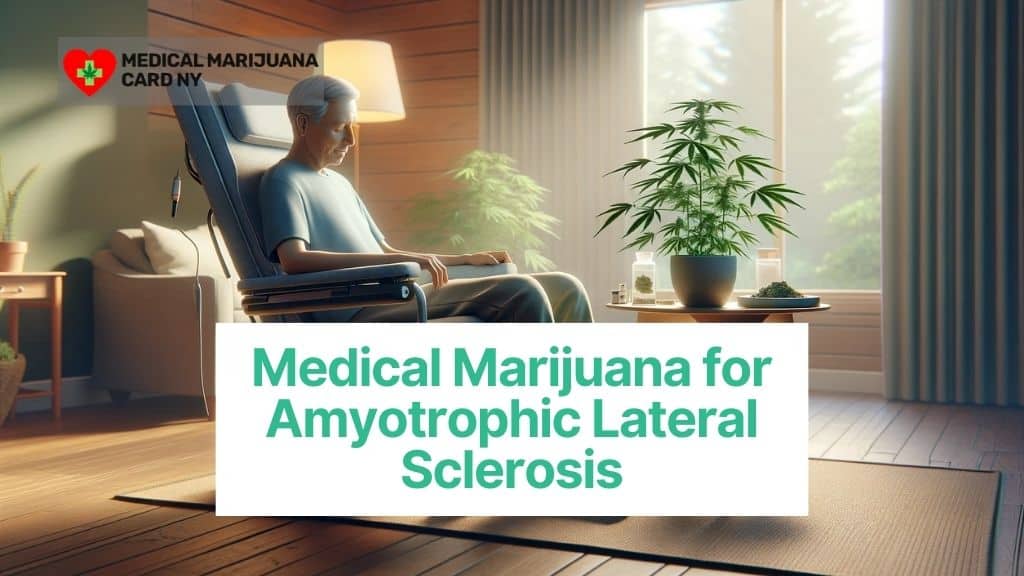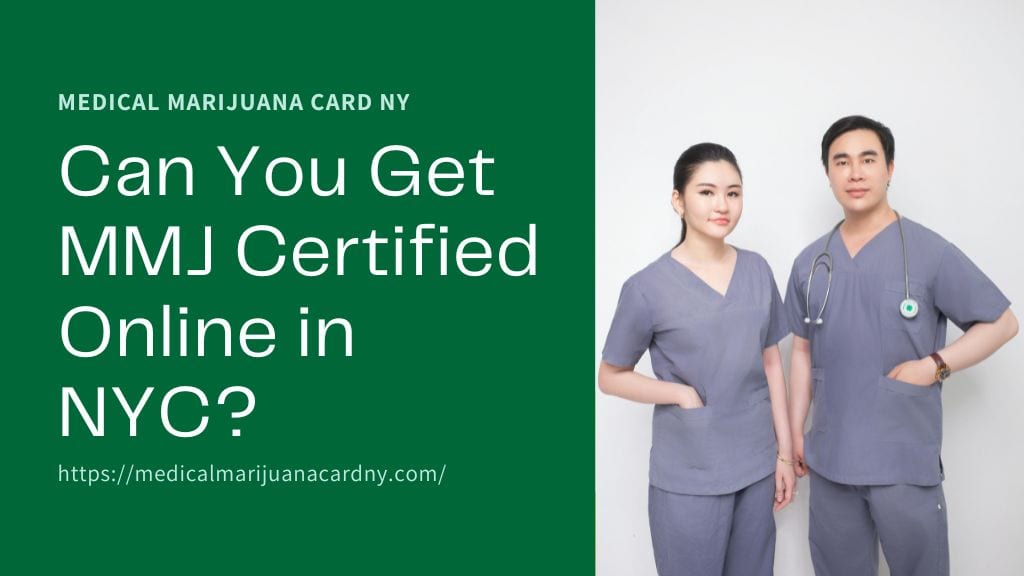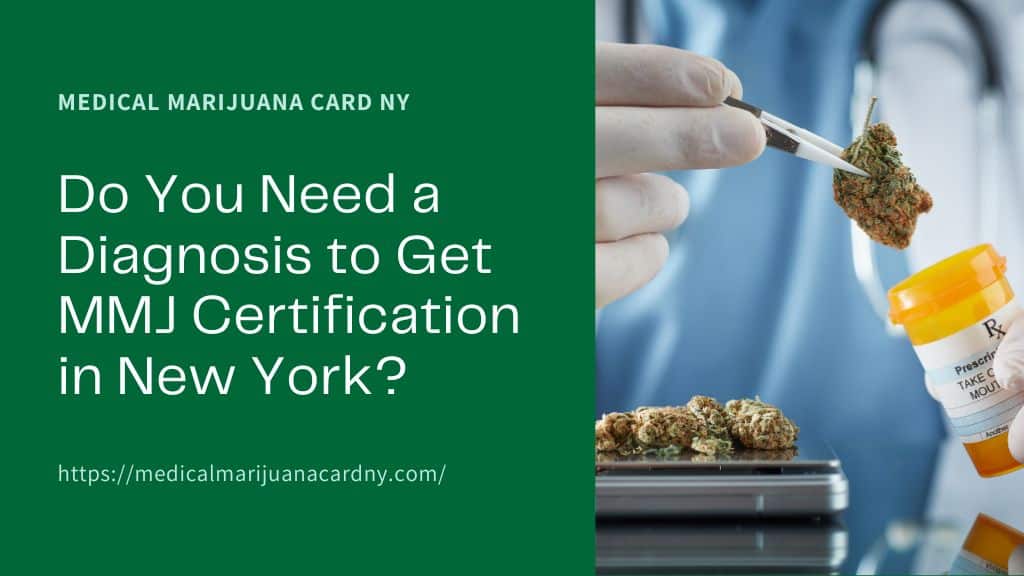Medical marijuana is increasingly recognized for its potential benefits in managing Amyotrophic Lateral Sclerosis (ALS) symptoms. In New York, patients with ALS can access medical marijuana through certified healthcare providers. ALS, a progressive neurodegenerative disease, affects nerve cells in the brain and spinal cord, leading to muscle weakness and loss of voluntary movement. While there’s no cure for ALS, medical marijuana may offer symptom relief.
It can potentially ease pain, seizures, muscle spasms, and involuntary movements. The treatment includes using chemicals from the marijuana plant, like THC and CBD, in various forms such as oils, edibles, and creams. This approach is part of a broader care plan for ALS patients that focuses on maintaining mobility and comfort.
Table of Contents
ToggleUnderstanding Amyotrophic Lateral Sclerosis (ALS)
What is Amyotrophic Lateral Sclerosis (ALS)?
Amyotrophic Lateral Sclerosis (ALS), also known as Lou Gehrig’s disease, is a progressive neurodegenerative disorder that primarily affects the nerve cells (neurons) in the brain and spinal cord. The term “amyotrophic” refers to the loss of muscle nourishment, which leads to muscle atrophy. “Lateral” signifies the areas in the spinal cord where affected nerve cells are located.
As ALS progresses, these motor neurons degenerate and die, leading to a loss of voluntary muscle action. This deterioration results in an inability to initiate and control muscle movement, eventually affecting the ability to speak, eat, move, and even breathe.
How Does ALS Affect Individuals Physically and Neurologically?
Physically, ALS manifests initially as muscle weakness or stiffness, which may start in the limbs (limb onset ALS) or with speech and swallowing difficulties (bulbar onset ALS). As the disease progresses, symptoms expand to include muscle cramps, twitching, difficulty using arms and legs, speech difficulties, and eventual respiratory challenges.
Neurologically, the degeneration of motor neurons leads to a loss of function in the muscles they supply. This can severely impact mobility and independence, and in advanced stages, patients may require assistive devices and breathing support.
Why is ALS Considered a Devastating Neurological Condition?
ALS is devastating due to its rapid progression and the severe impact it has on a person’s life. It leads to muscle weakness, atrophy, and paralysis while leaving mental faculties intact, which can be particularly distressing. The prognosis varies, but typically, individuals with ALS have a life expectancy of about three to five years post-diagnosis. However, some live longer.
There’s currently no cure for ALS, and the available treatments focus on slowing disease progression and managing symptoms. The cause of ALS is not fully understood, but it’s believed to involve a combination of genetic and environmental factors. The disease’s unpredictable nature and significant impact on physical capabilities contribute to its devastating reputation.
Medical Marijuana: An Overview
What Constitutes Medical Marijuana?
Medical marijuana refers to the therapeutic use of the marijuana plant or its extracts. It contains cannabinoids, mainly Delta-9-tetrahydrocannabinol (THC) and cannabidiol (CBD), which have varying effects on the body. THC is known for its psychoactive properties, while CBD does not cause a “high.” Medical marijuana is available in different forms, including dried leaves, oils, edibles, sprays, and creams, and is cultivated specifically for medical applications.
How Does Medical Marijuana Interact with the Human Body?
Medical marijuana interacts with the body’s endocannabinoid system (ECS), which plays a crucial role in regulating functions like pain, appetite, and mood. The cannabinoids from marijuana mimic the body’s endocannabinoids, binding to ECS receptors to produce various effects. This interaction can help alleviate symptoms like pain, muscle spasms, and seizures in some patients.
Who Can Benefit from Medical Marijuana Therapy?
Medical marijuana can be beneficial for patients with conditions like chronic pain, cancer, multiple sclerosis, Crohn’s disease, seizure disorders, and HIV/AIDS. It is especially useful for patients who do not respond well to traditional medications. However, the effectiveness and suitability of medical marijuana vary among individuals. In March 2023, the requirement for specific qualifying medical conditions was removed, giving doctors more discretion to recommend medical marijuana for various conditions without the need for a specific MMJ card, simplifying the certification and registration process for patients.
Who Can Benefit from Medical Marijuana Therapy?
Patients with a range of conditions may benefit from medical marijuana therapy. These conditions include Alzheimer’s disease, ALS, HIV/AIDS, Crohn’s disease, epilepsy, glaucoma, multiple sclerosis, chronic pain, and severe nausea due to cancer treatment. The suitability of medical marijuana for these conditions depends on individual state laws and medical guidance. As research continues, more insights are gained into the therapeutic potential of medical marijuana for various ailments.
Medical Marijuana in the Treatment of ALS
How Can Medical Marijuana Alleviate Symptoms of ALS?
Medical marijuana has been explored as a potential treatment to alleviate symptoms of Amyotrophic Lateral Sclerosis (ALS). Its properties may offer symptomatic relief in several areas, including pain relief, muscle relaxation, and reducing involuntary movements. Additionally, medical marijuana might have neuroprotective effects that could be beneficial for ALS patients.
What are the Documented Benefits of Medical Marijuana for ALS Patients?
Research suggests that medical marijuana can help manage various symptoms associated with ALS. These include easing muscle spasms, reducing pain, and possibly improving sleep and appetite. The cannabinoids in medical marijuana, especially THC and CBD, are known to interact with the body’s endocannabinoid system, which might play a role in these therapeutic effects.
Why Might Medical Marijuana Be Recommended for ALS Patients?
Medical marijuana might be recommended for ALS patients primarily for its potential to ease certain symptoms of the disease. Given the progressive and debilitating nature of ALS, medical marijuana could offer an additional option for symptom management, especially in cases where conventional treatments are insufficient or have undesirable side effects. With the changes in medical marijuana policies as of March 2023, doctors have more discretion to recommend medical marijuana without the need for specific qualifying conditions, making it more accessible to ALS patients who may benefit from it.
Legal and Access Considerations for Medical Marijuana in New York
Legal Regulations Surrounding Medical Marijuana in New York
In New York, medical marijuana is legally accessible under the Compassionate Care Act (CCA), established in 2014. This Act allows for the possession, use, delivery, and administration of medical marijuana by qualified patients and designated caregivers. The regulatory authority over the New York medical marijuana program (MMP) is the New York Department of Health, while the program is overseen by the Office of Cannabis Management (OCM). As of 2022, there were over 124,000 MMJ patients registered under New York’s medical cannabis program.
Accessing Medical Marijuana for ALS Patients in New York
Patients with ALS, or any other debilitating condition, can access medical marijuana through a certification process. The New York State Office of Cannabis Management (OCM) no longer lists specific medical conditions as qualifying for medical cannabis access. Instead, eligible healthcare providers, who are registered in New York State and can prescribe controlled substances, can certify patients for medical cannabis use. This decision is based on their assessment that the patient’s condition could benefit from marijuana treatment.
The certification process can be carried out in person or via telemedicine services. Once a patient is certified, they receive a medical cannabis certification that includes a registry ID number. This certification, along with a valid government-issued ID, is used to purchase medical cannabis at registered dispensaries. There is no cost for the healthcare certification for marijuana, but consultation charges apply when visiting healthcare providers for medical marijuana certifications.
Patients no longer have to register directly with the OCM; they are auto-registered in the program upon receiving medical cannabis certification. This simplifies the process significantly, making access easier for patients, including those with ALS.
Patient Experiences and Testimonials
ALS Patients Benefitting from Medical Marijuana in New York
In New York, ALS patients have been receiving medical marijuana certifications since the state’s medical marijuana program began. Dr. Thomas O’Brien, an Upper East Side physician, was among the first to secure such certifications for his patients. His approach to patient care has evolved to focus on compassionate and palliative care, and he has observed positive feedback from those who have used medical marijuana as part of their treatment.
Dr. O’Brien emphasizes the importance of patient education and monitoring, and his patients have reported improved quality of life after using medical marijuana. This includes managing symptoms like muscle spasms, pain, and sleep disturbances. The legalization of medical marijuana has shifted procurement from unregulated sources, ensuring safer and controlled usage for patients.
Efficacy of Medical Marijuana for ALS
Patients with ALS who have used medical marijuana report experiencing relief from various symptoms associated with the disease. This includes alleviation of muscle stiffness, reduction in chronic pain, and improvement in appetite. Research has indicated that cannabis possesses neuroprotective elements and anti-inflammatory properties that may slow the progression of ALS and prolong neuronal cell survival. Some patients have found that medical marijuana helps with other symptoms like appetite loss and sleep problems. Compared to prescription drugs, medical marijuana is seen as a viable alternative with fewer side effects.
Challenges and Ethical Considerations
Challenges in Using Medical Marijuana for ALS Treatment
The challenges in using medical marijuana for ALS treatment revolve around the need for more comprehensive research to understand its full effects on the disease’s progression and symptom management. Additionally, the variance in response to cannabis treatment among ALS patients presents a challenge, as what works for one patient may not be effective for another.
Addressing Ethical Concerns by Medical Professionals
Medical professionals address ethical concerns by focusing on patient education and informed consent. They ensure patients understand the certification process, dosage, and potential benefits and risks associated with medical marijuana. Continuous monitoring and personalized care are essential to address any concerns that arise during treatment. The approach is patient-centric, ensuring that the use of medical marijuana aligns with the patient’s overall treatment goals and quality of life considerations.
Conclusion
In New York, medical marijuana emerges as a beacon of hope for ALS patients, offering symptom relief and potential disease progression slowdown. With the state’s adaptable medical marijuana policies, healthcare providers can now recommend cannabis for ALS without predefined qualifying conditions, enhancing patient access.
Patients report significant improvements in managing pain, muscle stiffness, and appetite loss, underscoring medical marijuana’s role in enhancing life quality. However, the journey is marked by challenges like the need for extensive research and ethical considerations in treatment. As understanding deepens, medical marijuana stands as a promising adjunct in the multidisciplinary approach to ALS management in New York.
Resources
https://www.sciencedirect.com/science/article/abs/pii/S0035378723009712
https://pubmed.ncbi.nlm.nih.gov/20439484/
https://www.ncbi.nlm.nih.gov/pmc/articles/PMC5270417/
https://journals.sagepub.com/doi/abs/10.1177/104990910101800411
https://www.tandfonline.com/doi/abs/10.1586/14737175.2014.985209
https://journals.sagepub.com/doi/abs/10.1177/104990910402100206





